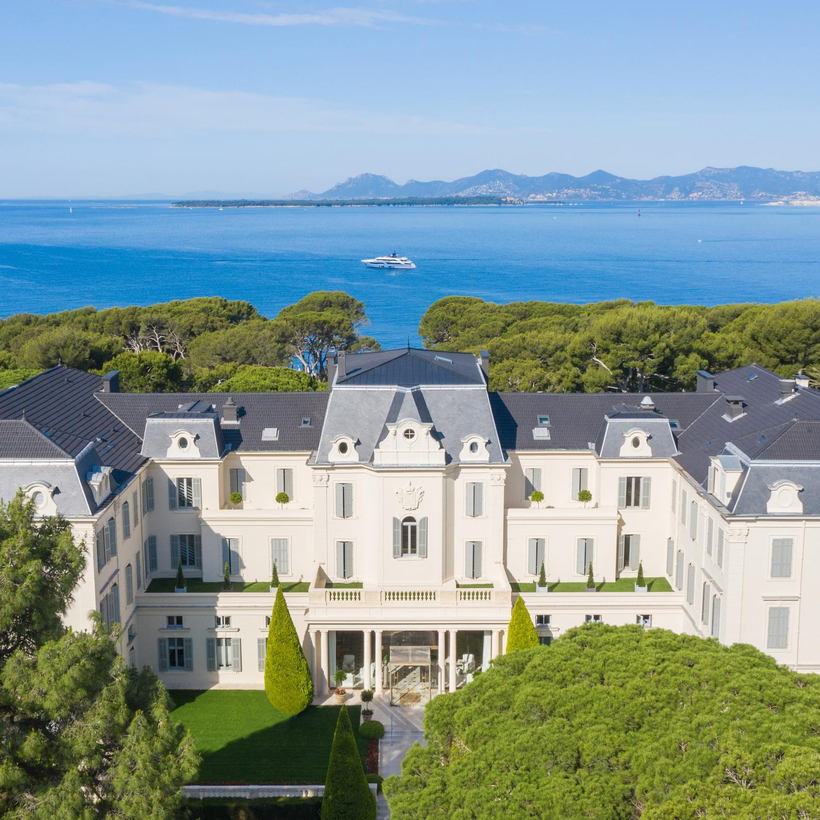Who doesn’t occasionally want to forsake this world and inhabit a superior one where civility reigns, the news is inconsequential, and the worst thing that can happen is a cloudy day?
And yet this fantasy approximates reality at the Hôtel du Cap-Eden-Roc, the grande dame of the French Riviera. Perched on a 22-acre park at the tip of Cap d’Antibes, it’s been specializing in old-fashioned escapism since the French owner of Le Figaro built it in 1870 as a writers’ retreat. It owes its mythical status to birthing great love affairs (Marlene Dietrich and Erich Maria Remarque), greater novels (Tender Is the Night), and the greatest excesses known to man (one guest chartered a helicopter to procure a tarte tropézienne). It’s the only place in the world where nobody would be surprised to see Barack Obama, Joan Collins, Don DeLillo, and Princess Charlene of Monaco polish off a bottle of Armagnac together.


